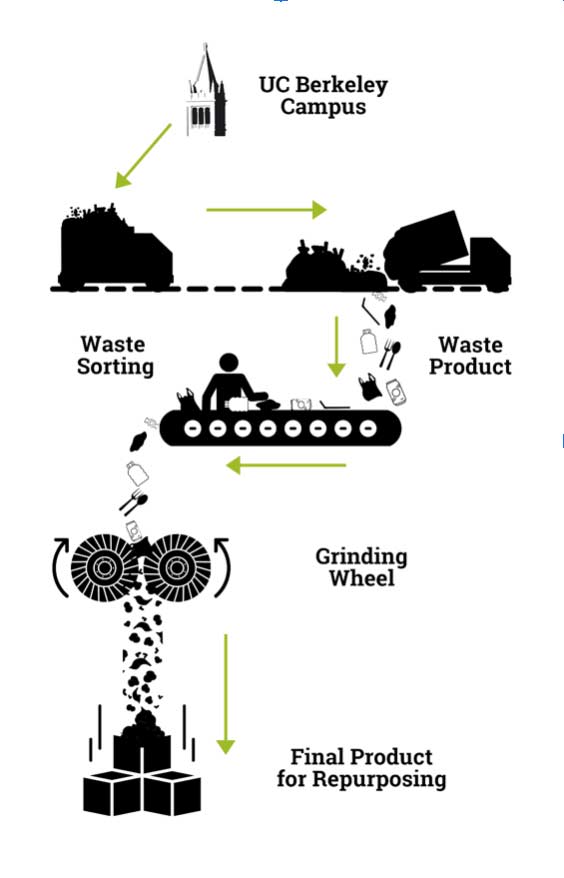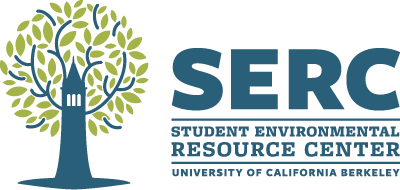UC Berkeley Materials Recovery and Recycling Facility
The Zero Waste Research Center (ZWRC) at UC Berkeley, in conjunction with Cal Zero Waste, the College of Engineering, and the College of Environmental Design are working to create the University of California’s first holistic Plastic Recycling Facility. At this facility, the University’s plastic and recycling waste will be transported to a facility in Richmond, California, at the UC Berkeley Global Campus, where through proper collection, sorting, and redistribution, a cradle-to-cradle system of waste will be created. This project will allow for the University of California, Berkeley to expand recycling and reuse programs, reduce its carbon footprint, and create research and education opportunities for its students and the community of Richmond.
Efficient sorting will be done through easy-to-understand signage and waste bins, as well as training waste collection crews to recognize objects in municipal solid waste (MSW) that can be recycled. Currently, Cal Zero Waste collects 17 tons of MSW every day from the campus. Of that amount, 4 tons is plastic waste, with another 3-5 tons of it being aluminum and glass recycling. This waste gets diverted and transferred to many different refuse centers by a means of “trading” recyclables in efforts to earn higher profits for the materials, causing a system of negative externalities, inefficient trade routes, and large carbon footprints to form. Through a simple Berkeley to Richmond and then back to UC Berkeley route, the complicated transport system can be shortened and our environmental footprint lessened. Most of the currently used methods of recycling involve inefficient collection routes, timelines, unproductive and underdeveloped recycling infrastructure. This causes no accountability for waste issues, and no forward planning for sustainability.
We plan to incorporate various projects regarding the recycling of plastics in order to provide educational opportunities for students in Richmond and at UC Berkeley. In conjunction with the Design Engineering Collaborative, the campus’s 3D printing community will become zero waste with the incorporation of failed prints as the source of filament for 3D printed projects. This project will happen at UC Berkeley in efforts to reduce the current waste created by the otherwise innovative technology, and will involve a simple and organized collection and redistribution process. We are also working with the College of Engineering and the College of Environmental Design in redistribution of plastics, as many scholars want the material for research needs. Finally, we plan to work in conjunction with the Richmond High School and provide educational opportunities for high school students.



